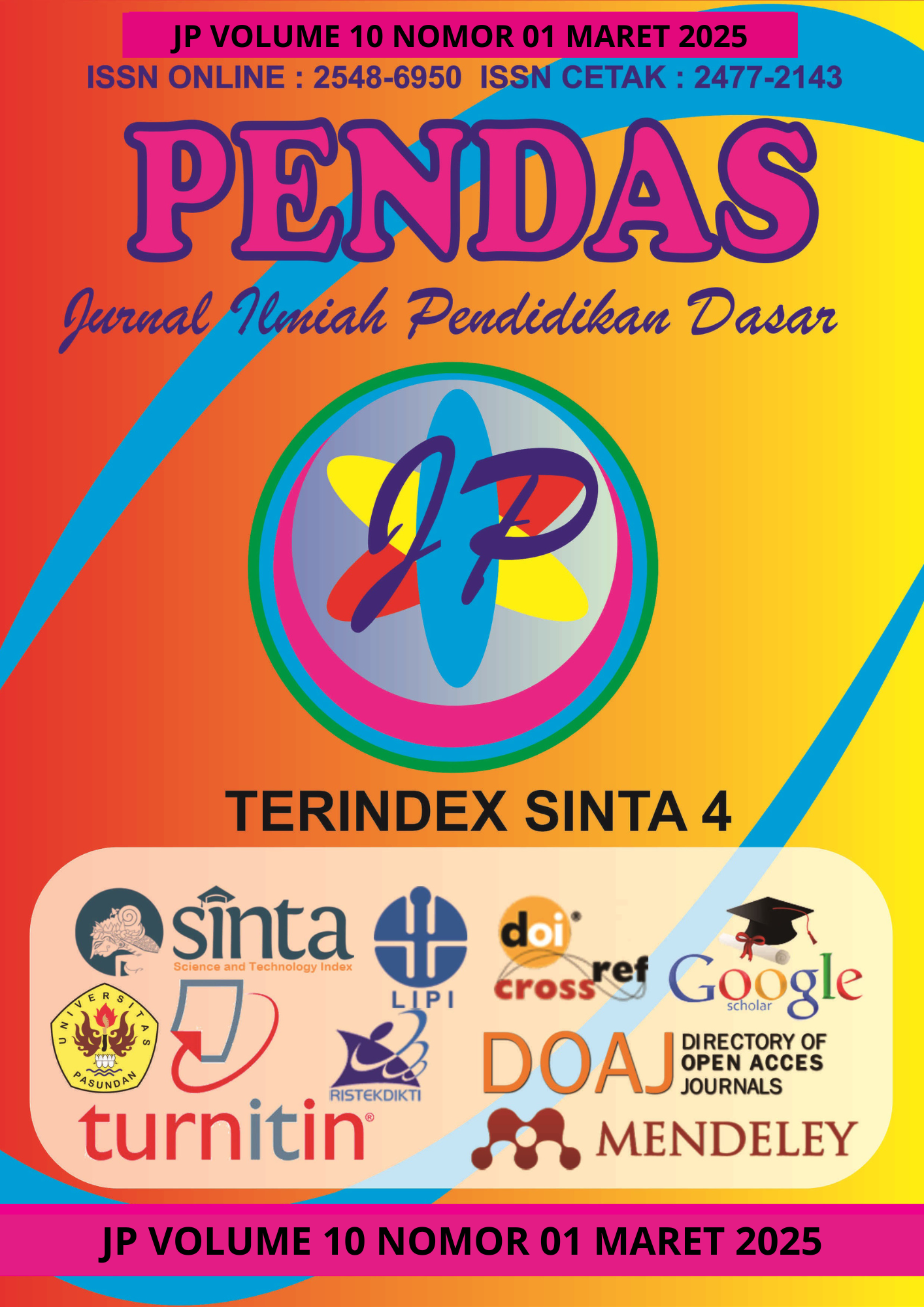URGENSI HADITS TARBAWI DALAM PENDIDIKAN ISLAM
DOI:
https://doi.org/10.23969/jp.v10i01.23682Keywords:
Tarbawi Hadiths, Islamic Education, Morality, Contemporary EducationAbstract
Islamic education today faces serious challenges, including moral degradation, value disorientation, and a spiritual crisis among students. One of the proposed solutions is the integration of Tarbawi Hadiths into the education system. Tarbawi Hadiths refer to a collection of hadiths related to pedagogy and character development, which serve as an essential source in Islamic education. This study aims to analyze the urgency of Tarbawi Hadiths in Islamic education, particularly in shaping students with noble character, critical thinking skills, and adaptability to changing times. The research employs a library research method with a qualitative approach and thematic analysis. Data were collected from various literature on Tarbawi Hadiths and primary hadith sources such as Sahih Bukhari and Sahih Muslim. The results indicate that Tarbawi Hadiths function not only as a theoretical foundation for Islamic education but also as a practical guide for educators in shaping students' morality. Furthermore, Tarbawi Hadiths act as both pedagogical and moral instruments capable of addressing contemporary educational challenges. By internalizing the values embedded within Tarbawi Hadiths, the educational process can balance cognitive and affective aspects while fostering a more inclusive and harmonious community.
Downloads
References
Abdullahi Maidugu, U., & Adamu Tanko Isah. (2024). Islamic Education and its Value. Bulletin of Islamic Research, 2(4), 725–744. https://doi.org/10.69526/bir.v2i4.165
Al-Bukhari, M. I. (2002). Shahih al-Bukhari. Dar al-Kutub al-Ilmiyah.
Alfiah. (2015). Hadist Tarbawi (Pendidikan Islam Dalam Tinjauan Hadist Nabi).
Alwizar, Syafaruddin, Nurhasnawati, Darmawati, Zatrahadi, M. F., & Istiqomah, I. (2021). Analisis Systematic Literature Review Tafsir Tarbawi: Implementasi Tafsir Tarbawi pada Pendidikan Islam. JPPI (Jurnal Penelitian Pendidikan Indonesia), 7(4).
Azra, A. (2019). Pendidikan Islam: Tradisi dan Modernisasi di Tengah Tantangan Milenium III.
Ismail, I. (2016). Character Education Based on Religious Values: an Islamic Perspective. Ta’dib: Jurnal Pendidikan Islam, 21(1), 41–58. https://doi.org/10.19109/td.v21i1.744
Kamil, A. (2017). Pendidikan Islam dan Hadits Tarbawi. UMM Press.
Kholish, M. J. (2021). Etika dan Moral dalam Pandangan Hadis Nabi Saw. Jurnal Riset Agama, 1(1), 83–96. https://doi.org/10.15575/jra.v1i1.14259
Mujahid, I. (2021). Islamic orthodoxy-based character education: creating moderate Muslim in a modern pesantren in Indonesia. Indonesian Journal of Islam and Muslim Societies, 11(2), 185–212. https://doi.org/10.18326/ijims.v11i2.185-212
Silvia, E. (2023). Urgensi Hadis Dan Ulumul Hadis dalam Pendidikan Islam. Murabby: Jurnal Pendidikan Islam, 6(2), 185–192.
Suryadarma, Y., & Haq, A. H. (2020). Integrasi Nilai-Nilai Hadits Tarbawi dalam Kurikulum Pendidikan Islam. Jurnal Pendidikan Islam, 12(2), 45–60.
Syarif, A. (2018). Hadits dan Relevansinya dalam Pendidikan Islam. Pustaka Setia.
Tafsir, A. (2017). Ilmu Pendidikan dalam Perspektif Islam. Remaja Rosdakarya. https://inlislite.uin-suska.ac.id/opac/detail-opac?id=25228
Tamjidnoor. (2022). Pendidikan Islam dalam Perspektif Hadits. Edukatif: Jurnal Ilmu Pendidikan, 4(6).
Triono, A., Maghfiroh, A., Salimah, M., & Huda, R. (2022). Transformasi Pendidikan Pesantren di Era Globalisasi: Adaptasi Kurikulum yang Berwawasan Global. Al-Tarbawi Al-Haditsah: Jurnal Pendidikan Islam, 7(1), 72. https://doi.org/10.24235/tarbawi.v7i1.10405
Zaenuri, A. (2020). Pembuatan Buku Ajar Hadits Tarbawi Sebagai Usaha Peningkatan Pemahaman Hadits-Hadits Pendidikan Bagi Mahasiswa. Dimas: Jurnal Pemikiran Agama Untuk Pemberdayaan, 20(2), 191. https://doi.org/10.21580/dms.2020.202.5418
Zed, M. (2023). Metode Penelitian Kepustakaan (6th ed.). Yayasan Pustaka Obor Indonesia.
Downloads
Published
Issue
Section
License
Copyright (c) 2025 Pendas : Jurnal Ilmiah Pendidikan Dasar

This work is licensed under a Creative Commons Attribution 4.0 International License.














































